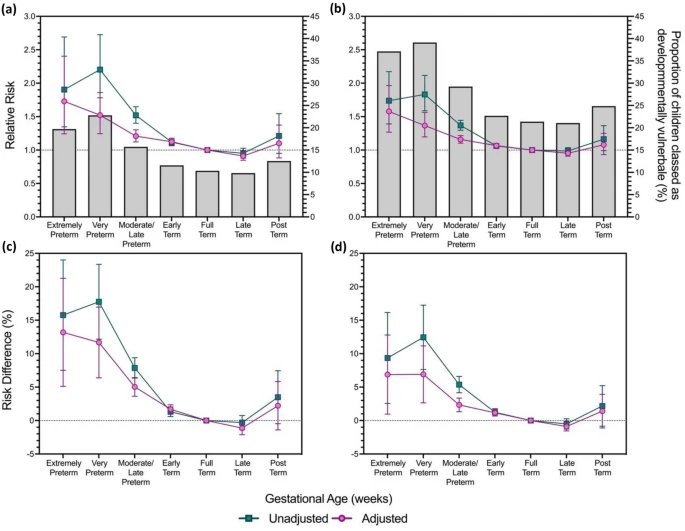Does gestational age affect early childhood development?
Gestational age is the length of time the child spends in utero before birth i.e. the duration of the mum’s pregnancy. Early gestational age can result in insufficient time for physical and neurological development, which could translate to poorer school readiness. Alternatively, associations between early gestational age and poorer school readiness or developmental vulnerability in early childhood could be expalined by confounding by sociodemographic risk factors. This study involved linkage of perinatal data to the Australian Early Development Census for a cohort of 64,810 children, with follow-up from birth to school entry. The study outcomes were developmental vulnerability in several domains e.g., physical, emotional, cognitive, and language domains. Both early and late gestational ages were associated with childhood developmental vulnerability. Risk was highest for children born extremely preterm and lowest for children born late-term. Adjustment for sociodemographic characteristics attenuated associations for all gestational age categories, but did not explain away associations completely. This work was undertaken by our PhD candidate, Gursi Dhamrait. The article published in Nature Scientific Reports is here

Source: Scientific Reports 2021, 11. p.14522.
References
- Dhamrait, G.K., Christian, H., O’Donnell, M., and G. Pereira. Gestational age and child development at school entry. Sci Rep 11, 14522 (2021).